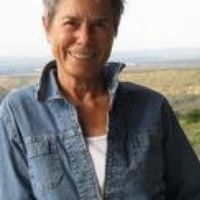Penelope Eckert

Albert Ray Lang Professor, Emerita
PhD, Columbia University, Linguistics (1978)
MA, Columbia University, Linguistics (1969)
BA, Oberlin College, French (1963)
Concentration Advising in:
Academic Appointments
Emeritus Faculty, Acad Council, Linguistics
Boards, Advisory Committees, Professional Organizations
Member, Committee on Graduate Study, Stanford University (2011 - Present)
Member, Faculty Senate Committee on Committees, Stanford University (2007 - 2009)
Chair, Faculty Senate Committee on Committees, Stanford University (2008 - 2009)
Member, Administrative Panel on Human Subjects in Non-medical Research, Stanford University (1997 - Present)
Chair, Administrative Panel on Human Subjects in Non-medical Research, Stanford University (2000 - Present)
Director, Program in Feminist Studies, Stanford University (2001 - 2008)
Member, Policy Board, Institute for Research on Women and Gender, Stanford University (2001 - 2007)
Resource Faculty member, Comparative Studies in Race and Ethnicity (2005 - Present)
Resource Faculty Member, Symbolic Systems (2007 - Present)
Member, Steering Committee, Faculty Women's Caucus, Stanford University (1999 - 2004)
Honors & Awards
Albert Ray Lang Professorship in Humanities and Sciences, Stanford University (2012)
Fellow, Linguistic Society of America (2011)
Fellow, American Academy of Arts and Sciences (2011)
Skomp Lecturer, Department of Anthropology. Indiana University (2011)
Walker Ames Scholar, University of Washington (2008)
Doctor Philosophiae Honoris Causa, Copenhagen University (2005)
Resident Fellow, Rockefeller Foundation Study Center (1999)
The goal of my research is to understand the social meaning of linguistic variation. In order to do this, I pursue my sociolinguistic work in the context of in-depth ethnographic fieldwork, focusing on the relation between variation, linguistic style, social identity and social practice.
Gender has been the big misunderstood in studies of sociolinguistic variation - in spite of the fact that some of the most exciting intellectual developments over the past decades have been in theories of gender and sexuality ... so I have been spending a good deal of time working on language and gender as well.
Since adolescents and preadolescents are the movers and shakers in linguistic change, I concentrate on this age group, and much of my research takes place in schools. The institutional research site has made me think a good deal about learning and education, but particularly about the construction of adolescence in American society.
Gender has been the big misunderstood in studies of sociolinguistic variation - in spite of the fact that some of the most exciting intellectual developments over the past decades have been in theories of gender and sexuality ... so I have been spending a good deal of time working on language and gender as well.
Since adolescents and preadolescents are the movers and shakers in linguistic change, I concentrate on this age group, and much of my research takes place in schools. The institutional research site has made me think a good deal about learning and education, but particularly about the construction of adolescence in American society.
Contact
Email
eckert [at] stanford.edu
Info Links
External Profile